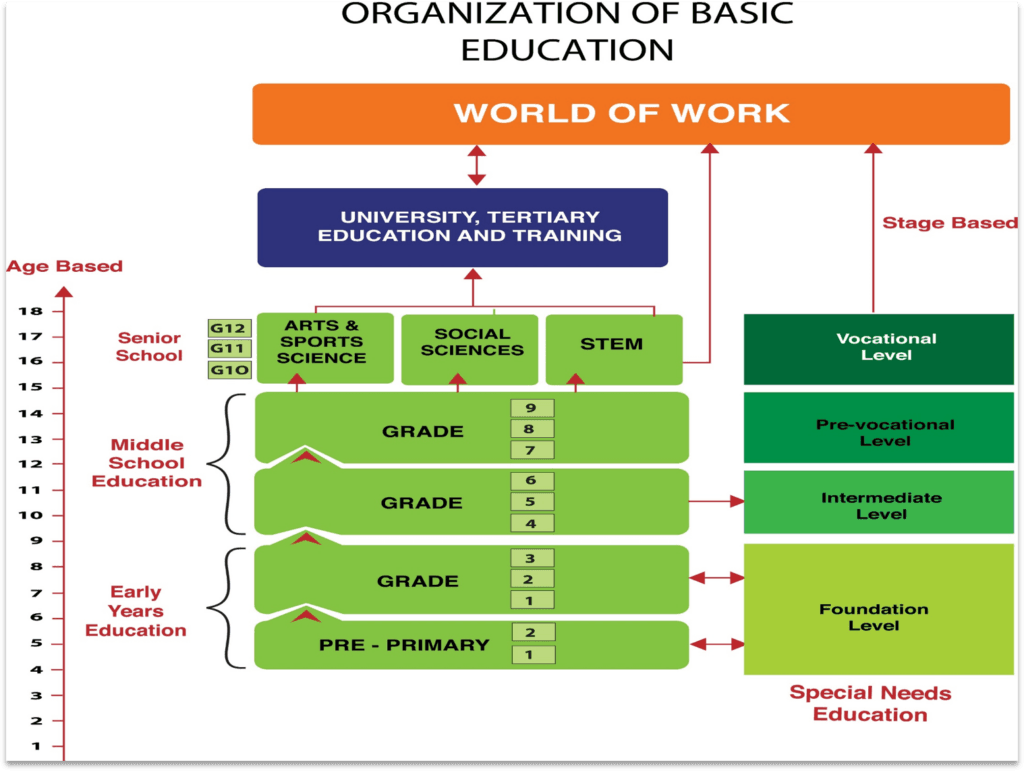Understanding Beekeeping: Key Components and Factors Affecting Honey Quality
🍯 Factors Affecting Honey Quality 🐝 Understanding what makes honey delicious and nutritious 🌺 Types.…

he Competency-Based Curriculum (CBC) in Kenya marks a significant shift in the educational landscape, emphasizing skills and competencies over rote memorization. This innovative curriculum is designed to cater to the diverse needs of learners, particularly in the early years of education, which are crucial for cognitive and social development.
In Kenya, the early years of education encompass children aged 4 to 9 years. This period is foundational, as it lays the groundwork for lifelong learning and development. The curriculum aims to nurture holistic growth by focusing on physical, emotional, social, and cognitive development.
The early years of education are organized into specific levels, ensuring that children receive age-appropriate learning experiences:
Understanding that every child has unique needs, the CBC also accommodates special education. The curriculum includes fundamental levels specifically designed for students with special needs, ensuring inclusivity and equitable access to education. Tailored programs provide appropriate support, allowing these learners to thrive alongside their peers.

Middle school education in Kenya represents a pivotal stage in the Competency-Based Curriculum (CBC), catering to students aged 9 to 15 years. This phase focuses on developing critical thinking, problem-solving skills, and a deeper understanding of various subjects as students transition from childhood to adolescence.
Middle school education encompasses learners between the ages of 9 and 15, corresponding to Grade 4 through Grade 9. This period is marked by significant cognitive, emotional, and social development, necessitating a curriculum that supports varied learning needs and prepares students for future educational pathways.
The middle school curriculum is structured across several grades, each building on the knowledge and skills acquired in the earlier years:
For students with special needs, the CBC offers tailored learning pathways to ensure inclusivity and support:
Students with mild to moderate disabilities engage in an intermediate level of education, where they receive specialized instruction in core subjects. This approach ensures that they can participate in the general education curriculum alongside their peers, fostering social interaction and collaboration.
For learners with more significant challenges, a pre-technical level of special needs education is available. This program focuses on practical skills and vocational training, preparing students for future employment and independent living. Emphasis is placed on hands-on learning experiences that align with their abilities and interests.
Senior school education in Kenya represents a crucial phase for students aged 16 to 18 years, typically encompassing Grades 10 to 12. This stage is characterized by specialization and preparation for higher education, with a focus on developing skills and knowledge that will serve students in their future careers and academic pursuits.
Senior school education is designed for learners aged 16 to 18, providing a structured environment where they can deepen their knowledge and skills in specific areas of interest. This phase is essential as it prepares students for university and other post-secondary opportunities.
Students in senior school progress through Grades 10 to 12, where they have the option to specialize in various fields:
For students with special needs, the CBC offers a vocational level of education. This program focuses on practical skills that prepare them for the workforce, ensuring that they acquire competencies that are valuable in various trades and professions.
Posted on by Elimu Assistant Team
🍯 Factors Affecting Honey Quality 🐝 Understanding what makes honey delicious and nutritious 🌺 Types.…
Posted on by Elimu Assistant Team
Protein Power Foods 🥩 Fuel your body with these excellent protein sources Animal-Based Proteins 🐄…
Posted on by Elimu Assistant Team
🏥 Health Promotion Community Challenges 🏥 Identifying and understanding common obstacles in local he…
Posted on by Elimu Assistant Team
Official KNEC Submission Guidelines for Schools The Kenya National Examinations Council has issued t…
Get in Touch!If you need any educational resources, feel free to reach out directly. I'm here to help!Name: Mr. Atika Email: nyamotima@yahoo.com Phone: 📞 0728 450 425Let’s empower your learning journey together!
Elimu Assistant
Access a wide range of academic resources, including KCSE past papers, mathematics, and chemistry materials to enhance your exam preparation. | WhatsApp! | Telegram! |
Elimuspace
Access a wealth of information, including job opportunities, news, and academic materials. Stay updated and connected with a community of followers. |Join Elimuspace Now!|